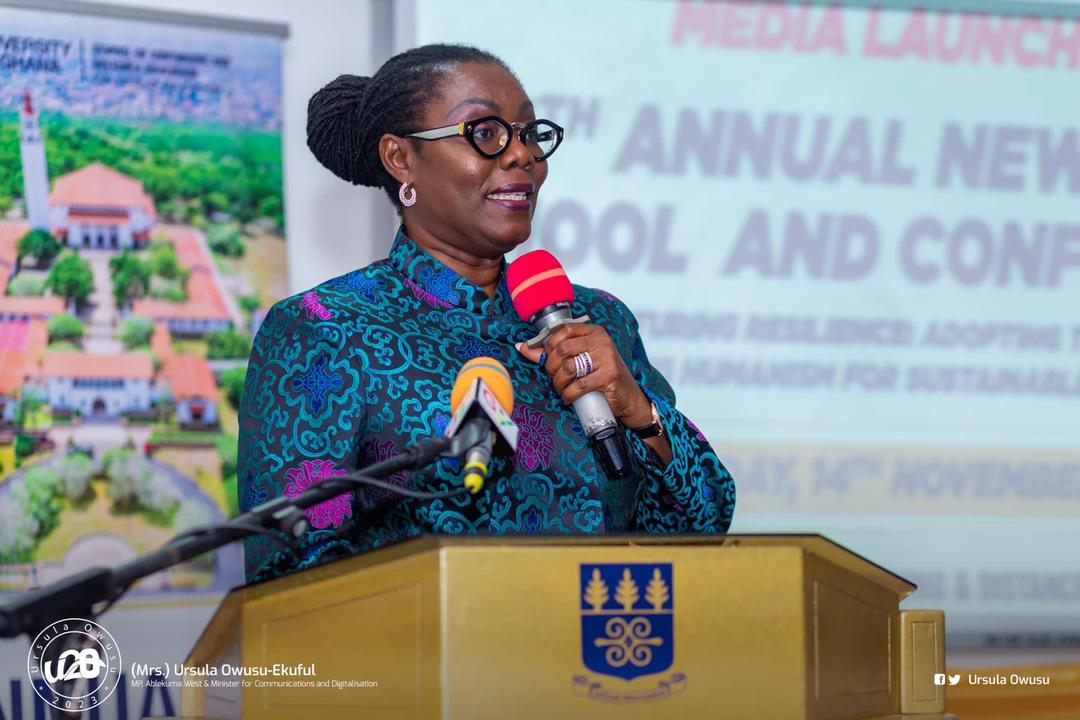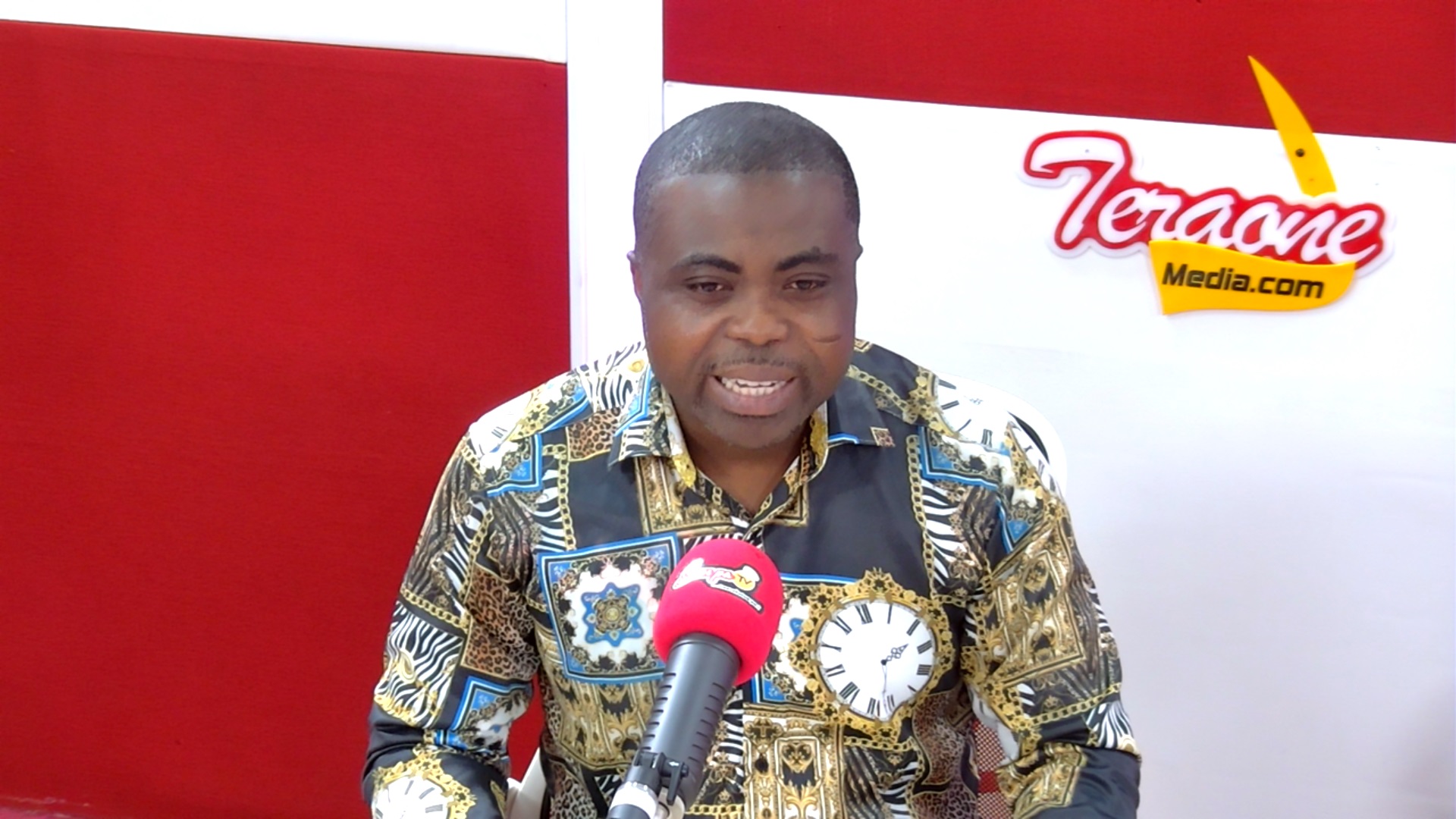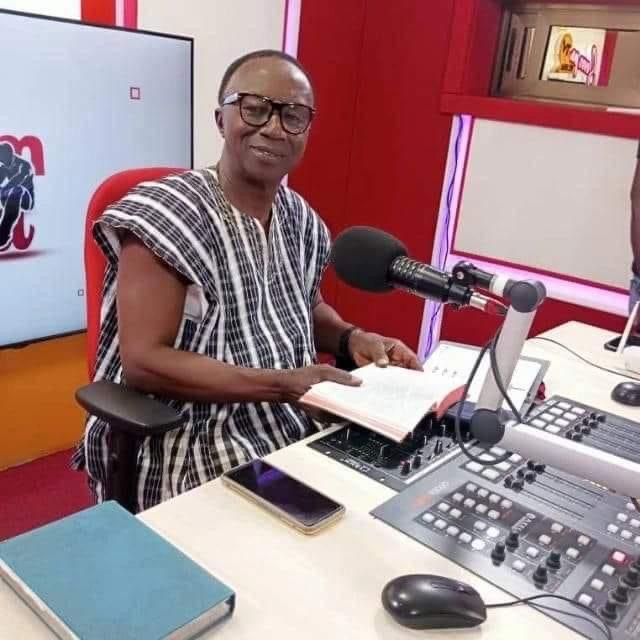The Minister for Communications and Digitalisation, Ursula Owusu-Ekuful, has stated that various sectors of the economy are undergoing transformation to build a more robust, wealthier, and inclusive digital economy, with Information and Communication Technology (ICT) playing a key role.
She mentioned that several projects are being implemented to deepen and formalize the economy through technology. These initiatives focus on policy and regulation, ICT infrastructure development, universal access initiatives, ICT capacity building, data management, e-governance, and cybersecurity awareness and preparedness.
Addressing the media launch of the 75th Annual New Year School and Conference at the University of Ghana, Mrs. Owusu-Ekuful emphasized that the integration of digital technologies into various aspects of life is driving the transformation agenda. At the core of this transformation, she said, is the concept of resilience, which empowers individuals, communities, and organizations to adapt, learn, and thrive in the face of global challenges, including health crises, conflicts, and natural disasters.
“In the digital age, technology-enabled resilience has become essential, equipping us with the tools and capabilities to navigate the complexities of interconnectedness, work, and live in the modern world. We witnessed the disruptive moments occasioned by COVID-19 and how technology became the adhesive that kept the fabric of society intact,” she stated.
She mentioned that the event's theme, "Nurturing Resilience; Adopting Technology and Embracing Humanism for Sustainable Development," is in perfect harmony with the government's vision. Ensuring resilience, promoting the adoption of technology to enhance lives, and achieving specific targets outlined in the Sustainable Development Goals are fundamental principles guiding government digital initiatives.
Initiatives Making a Difference
Mrs. Owusu-Ekuful also used the opportunity to highlight initiatives and projects by the government that are making a difference in the lives of citizens.
She spoke highly of the National Identification program and the National Digital Property System, which serve as a national digital information hub for the identification and location of people and places in the country.
“Our mobile money interoperability program has deepened financial inclusion, provided seamless transfer of funds between several service providers, mobile money wallets, and bank accounts, and made Ghana the fastest-growing mobile money market on the continent. These three initiatives form the foundation of our emerging digital economy, making life more convenient for the average person,” she said.

She said the e-Passport, an online passport application process, is helping many citizens and making it easier to obtain a passport, representing unprecedented progress in the history of passport acquisition in Ghana. The driver's license application process has also been streamlined and digitalized, reducing the inconvenience to applicants and the impact of "goro boys."
On Ghana.gov, a digital services and revenue collection platform, she stated that it was created to provide a single point of access to the Government of Ghana services for the public sector. “On this platform, one can apply, pay for, and obtain various government services seamlessly, confident that the payments will be received and utilized by the respective state agencies, enhancing citizen-to-government interactions. The process of onboarding new services onto the platform is ongoing. We are reducing the human interface and using digital technology to fight corruption instead of empty sloganeering,” she said.
Touching on the commencement of the use of the Ghana Card (National ID) as a Tax Identification Number (TIN), she said the government has so far increased the number of people with TIN Numbers from 750,000 in 2016 to 15.5 million, as a way of widening the tax net. “The government has also increased the number of people with SSNIT Numbers from three million to 15.5 million through the merger of the SSNIT and Ghana Card. Ghana Card has also been linked to the NHIS Card and to the SIM Card in the recent SIM card re-registration exercise,” she added.
She said the National Government Cloud Infrastructure (G-CLOUD) to support both the Public and Private sectors with cloud computing services has also been installed, “while we have rolled out several e-government services including e-justice, e-procurement, and e-registrar, amongst others.”
Bridging the Digital Divide
To narrow the gender digital divide, Mrs. Owusu-Ekuful cited the expansion of the Girls-in-ICT Initiative to include mentorship sessions where accomplished female ICT professionals interact with and encourage the girls to take up courses in Information and Communication Technologies.
They also get to spend a week in Accra to experience women in technology at their workplace and be excited to take up careers in ICT later in life. With just a few days of training in computer literacy and coding, Mrs. Owusu-Ekuful said young girls between 9 and 13 years of age, some of whom had never seen a computer before, were building their own websites.
“The results of all this will be fully visible in a few years, but we have already begun seeing early signs of success in confident, self-assured, articulate young people, ready to take on any challenge,” she stated.
Sompaonline.com/Nana Yaw Boamah













 Sompaonline.com offers its reading audience with a comprehensive online source for up-to-the-minute news about politics, business, entertainment and other issues in Ghana
Sompaonline.com offers its reading audience with a comprehensive online source for up-to-the-minute news about politics, business, entertainment and other issues in Ghana